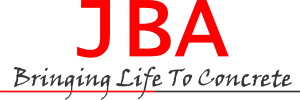Warehouse Flooring: A Comprehensive Guide
Introduction
In the logistics and industrial sector, where efficiency and durability are paramount, warehouse flooring plays a critical role. The choice of flooring material can significantly impact operations, safety, and maintenance costs. In this guide, we’ll delve into the various aspects of warehouse flooring, exploring materials, considerations, and best practices to help you make informed decisions for your facility.

Types of Warehouse Flooring
Concrete Flooring
Concrete is the most common material used for warehouse flooring due to its durability, affordability, and versatility. It can withstand heavy loads, high traffic, and various environmental conditions. Concrete floors can be further enhanced with coatings or toppings for added strength, chemical resistance, and aesthetics.
Epoxy Flooring
Epoxy coatings are applied over concrete floors to create a seamless, durable, and easy-to-clean surface. Epoxy flooring provides excellent resistance to chemicals, abrasion, and impacts, making it ideal for warehouses, manufacturing plants, and distribution centers. It’s available in a variety of colors and finishes, allowing for customization to meet specific requirements.
Polished Concrete
Polished concrete offers a sleek and professional appearance while maintaining the durability and functionality of traditional concrete flooring. Through a multi-step process of grinding, honing, and polishing, the surface is hardened and refined, resulting in a low-maintenance, dust-free, and reflective floor finish. Polished concrete is suitable for both new constructions and existing concrete floors.
Resin Flooring
Resin flooring systems, such as polyurethane and methyl methacrylate (MMA), offer enhanced chemical resistance, slip resistance, and thermal shock resistance compared to traditional epoxy coatings. These systems are often used in specialized warehouse environments where hygiene, safety, and durability are critical, such as food processing facilities, pharmaceutical warehouses, and cold storage areas.
Factors to Consider
Load Bearing Capacity
Warehouse flooring must be able to support the weight of heavy machinery, equipment, and inventory without cracking or deteriorating. Assess the load-bearing capacity of the flooring material to ensure it meets the requirements of your operations.
Traction and Safety
Slip and fall accidents are a significant concern in warehouses. Choose flooring materials with adequate traction properties to minimize the risk of accidents, especially in areas prone to spills or moisture.
Chemical Resistance
Depending on the nature of your business, your warehouse may be exposed to various chemicals, oils, and solvents. Select flooring systems with high chemical resistance to prevent corrosion and degradation over time.
Ease of Maintenance
Efficient cleaning and maintenance are essential for preserving the integrity and appearance of warehouse flooring. Consider the ease of cleaning, stain resistance, and long-term maintenance requirements when choosing a flooring material.
Installation and Maintenance
Proper installation and ongoing maintenance are crucial for maximizing the lifespan and performance of warehouse flooring. Work with experienced contractors who specialize in industrial flooring to ensure correct installation techniques and application of coatings or toppings. Implement a regular maintenance schedule, including cleaning, inspections, and repairs, to address any issues promptly and prolong the life of the flooring system.

Conclusion
Warehouse flooring is a critical component of industrial facilities, impacting safety, efficiency, and operational costs. By understanding the different types of flooring materials, considering key factors such as load-bearing capacity, traction, and chemical resistance, and implementing proper installation and maintenance practices, you can ensure the longevity and performance of your warehouse flooring system. Invest in high-quality flooring solutions that meet the specific needs of your business, providing a solid foundation for your operations for years to come.
With this guide, you’re now equipped with the knowledge to make informed decisions about warehouse flooring, optimizing your facility for success.
Why is warehouse flooring important?
Warehouse flooring is crucial for several reasons. It provides a stable and durable surface for heavy machinery, equipment, and inventory. Additionally, it contributes to the safety of the facility by minimizing slip and fall accidents. Moreover, the right flooring can enhance operational efficiency and reduce long-term maintenance costs.
What factors should I consider when choosing warehouse flooring?
When selecting warehouse flooring, consider factors such as load-bearing capacity, traction and safety features, chemical resistance, ease of maintenance, and longevity. Assessing these factors ensures that the chosen flooring material can withstand the specific demands of your operations.
How do I determine the load-bearing capacity of warehouse flooring?
The load-bearing capacity of warehouse flooring depends on various factors, including the type of material, thickness, reinforcement, and subfloor condition. Consult with flooring experts or engineers to conduct load calculations based on your facility’s requirements and usage.
Are there specific flooring options suitable for different warehouse environments?
Yes, different warehouse environments may require specific flooring solutions. For instance, industries dealing with chemicals or food processing may benefit from resin flooring systems due to their enhanced chemical resistance. Cold storage areas might require flooring materials designed to withstand extreme temperatures.
What maintenance practices are essential for preserving warehouse flooring?
Regular cleaning, inspections, and timely repairs are essential for maintaining warehouse flooring. Implementing a preventive maintenance schedule helps identify potential issues early and extends the lifespan of the flooring system. Additionally, follow manufacturer recommendations for cleaning products and procedures to prevent damage to the flooring material.
Contact Us

- 135, Arjun Nagar, Kotla Mubarakpur, Opposite Defence Colony, New Delhi - 110003 (INDIA)
- + 91 11 41553830, 011 41553820
- info@jbaindia.com